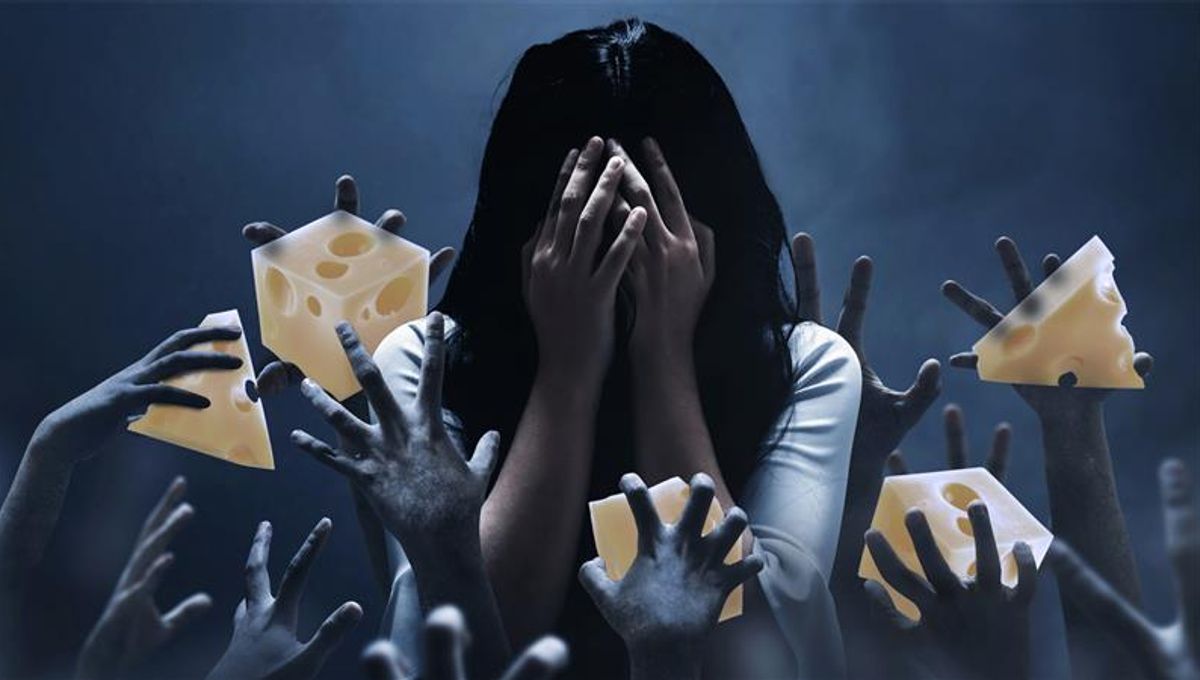
Humans have a weird relationship with cheese. It is extremely popular and even has entire festivals committed to it – such as ones where it is rolled down hillsides. Most people have their favorite type of cheese they like to pair with wine, crackers, or other delights. But accompanying the odd, almost mystique status cheese has in our culture is one persistent idea: eating too much cheese will give you bad or vivid dreams. But is this cautionary belief actually true?
Despite its popularity, it seems there is little evidence to back it up. That is not to say there isn’t some degree of truth in the old myth, but it is perhaps not the truth you might first assume.
The idea that cheese is some sort of (delicious) dream-stimulating substance has probably been around for centuries, though not on its own. Early systems like the Humoral theory (the Hippocratic-Galenic tradition), which dominated Western medicine from the time of the Ancient Greeks to the late 17th century, held the belief that certain hard-to-digest foods could produce nightmares.
Although this medical system eventually gave way to the empirical method, the idea that food (and indigestion more generally) caused bad dreams has stuck around.
In the 19th century, cheese as well as almonds, cucumbers, and even avocados were thought to create nightmares. This idea was expressed clearly in A Christmas Carol, when Ebenezer Scrooge accused the ghost of Robert Marley of being the product of his undigested meal.
The idea that cheese is particularly potent for bad dreams received further endorsement in 2005, when the British Cheese Board, a now-defunct promotional organization, funded a study that linked eating blue cheese to vivid dreams. In contrast, the study concluded that eating cheddar would make people dream of celebrities.
The study wasn’t overly scientific in nature, nor was it published in a peer-reviewed journal, but it nevertheless solidified the association between cheese and dreaming in the public mind.
At present, there does not seem to be any solid scientific evidence that cheese specifically causes bad dreams, but some have hypothesized that its dairy content may play a role – yet even this is contentious.
In 2015, a study examined food and diet as a potential cause of bad dreams and found that around 17.8 percent of its 382 participants blamed dairy products for causing bad dreams and poorer sleep.
However, the study does not draw a causal connection between dairy consumption and dreaming per se. Instead, it suggests that various explanations could address this association, including the “folklore hypothesis” which basically sees this as a cultural phenomenon.
“This hypothesis stipulates that an individual’s tendency to perceive particular foods as affecting their dreams originates in the assimilation of beliefs about food that have been transmitted inter-generationally within families, groups, or the broader culture,” the authors wrote.
“[S]ome members of a culture may falsely believe that a prevalent folktale about, say, pickles causing bizarre dreams applies to them when it does not.”
The authors also suggest that misattribution may play a role here too where, similar to the folklore hypothesis, people perceive a link between certain foods and dreaming that may be false.
But while cheese may not actually cause nightmares, there really hasn’t been too much research into the relationship between food, diets, and dreaming or sleeping, which could be considered quite strange given that people have been linking food and eating to dreams for centuries.
Perhaps some indirect connection between some eating habits and our dreams may emerge in the future, but for now, we can only conclude that if you have a bad dream after you’ve eaten a cheeseboard, the cheese is likely innocent.
All “explainer” articles are confirmed by fact checkers to be correct at time of publishing. Text, images, and links may be edited, removed, or added to at a later date to keep information current.
The content of this article is not intended to be a substitute for professional medical advice, diagnosis, or treatment. Always seek the advice of qualified health providers with questions you may have regarding medical conditions.
Source Link: Does Cheese Really Give You Bad Or More Vivid Dreams?